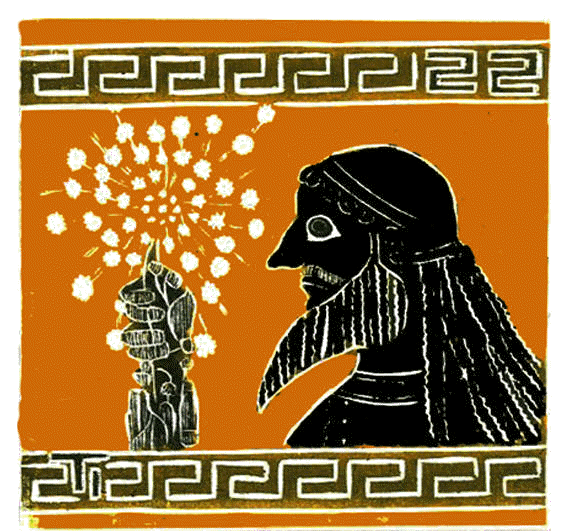Προμηθεύς
was a
Titan, culture hero, and trickster figure who in Greek
mythology is credited with the creation of man from clay
and the theft of fire from Heaven hidden in a fennel
stalk for human use, an act that enabled progress and
civilization. He is known for his intelligence, and as a
champion of mankind.
The punishment of Prometheus as a consequence of the
theft is a major theme of his mythology, and is a
popular subject of both ancient and modern art. Zeus,
king of the Olympian gods, sentenced the Titan to
eternal torment for his transgression. The immortal
Prometheus was bound to a rock, where each day an eagle,
the emblem of Zeus, was sent to feed on his liver, only
to have it grow back to be eaten again the next day. In
some stories, Prometheus is freed at last by the hero
Heracles.
In the Western classical tradition, Prometheus became a
figure who represented human striving, particularly the
quest for scientific knowledge, and the risk of
overreaching or unintended consequences. In particular,
he was regarded in the Romantic era as embodying the
lone genius whose efforts to improve human existence
could also result in tragedy.



.gif) I
chose to use cheaper versions of a 1000kV motor, 40amp Plush ESC and 4S 2200mAh
Nano LiPoly
from
I
chose to use cheaper versions of a 1000kV motor, 40amp Plush ESC and 4S 2200mAh
Nano LiPoly
from








